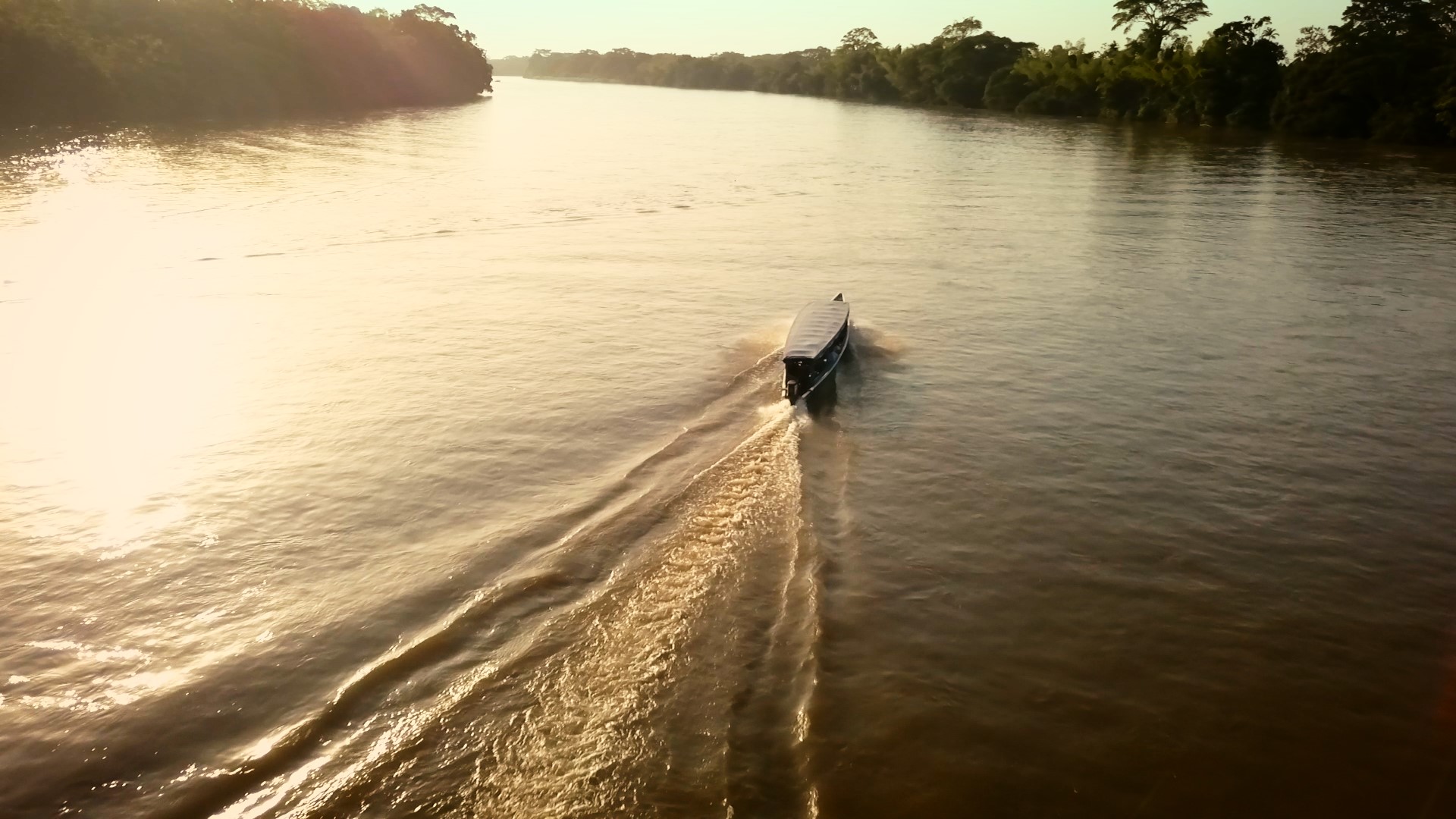Yuly Velásquez is a hope-inspiring defender of human rights and the environment in the Magdalena Medio region of Colombia. President of the Federation of Artisanal, Environmental and Tourist Fishers of the Department of Santander, known by its acronym FEDEPESAN, Yuly is lucky to be alive. She has survived three armed attacks. There are powerful people who want to silence Yuly’s demands for the conservation of wetlands that sustain lives, communities, and a healthy planet.
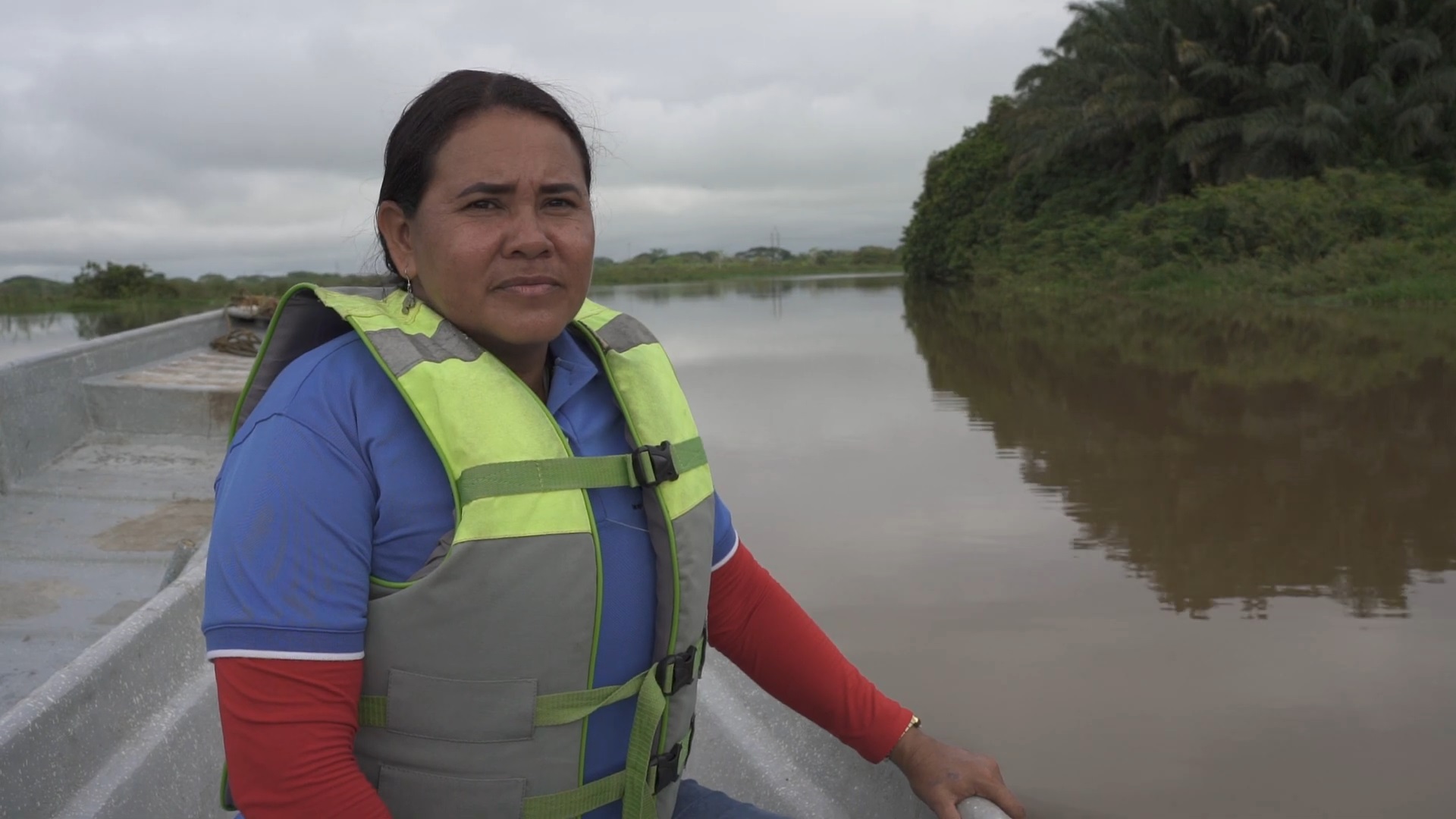
Here is what Yuly Velázquez wants to tell us:
“Everyone in Colombia deserves the right to clean water. Yet, our rivers and waterways are heavily polluted because of oil and gas. People are suffering from gastrointestinal diseases, and often have constant diarrhoea and rashes. It’s because we are drinking polluted water. It’s having a huge impact on our livelihoods too. Where I live, we need pristine water to catch and sell fish. But because of the pollution, our catch is declining. It’s a huge worry for us. It’s so sad that in Colombia, many families go to bed without any food. It’s troubling to see so many dead fish all year round. That’s why I want to ensure those responsible for pollution are held accountable. It’s not easy. I’ve been shot at … yet, despite the threats and attacks, more women have joined our cause and we’ve learnt to stand with one another – many have even got their children involved. It really motivates me and fills me with pride to see so many people join our cause.”
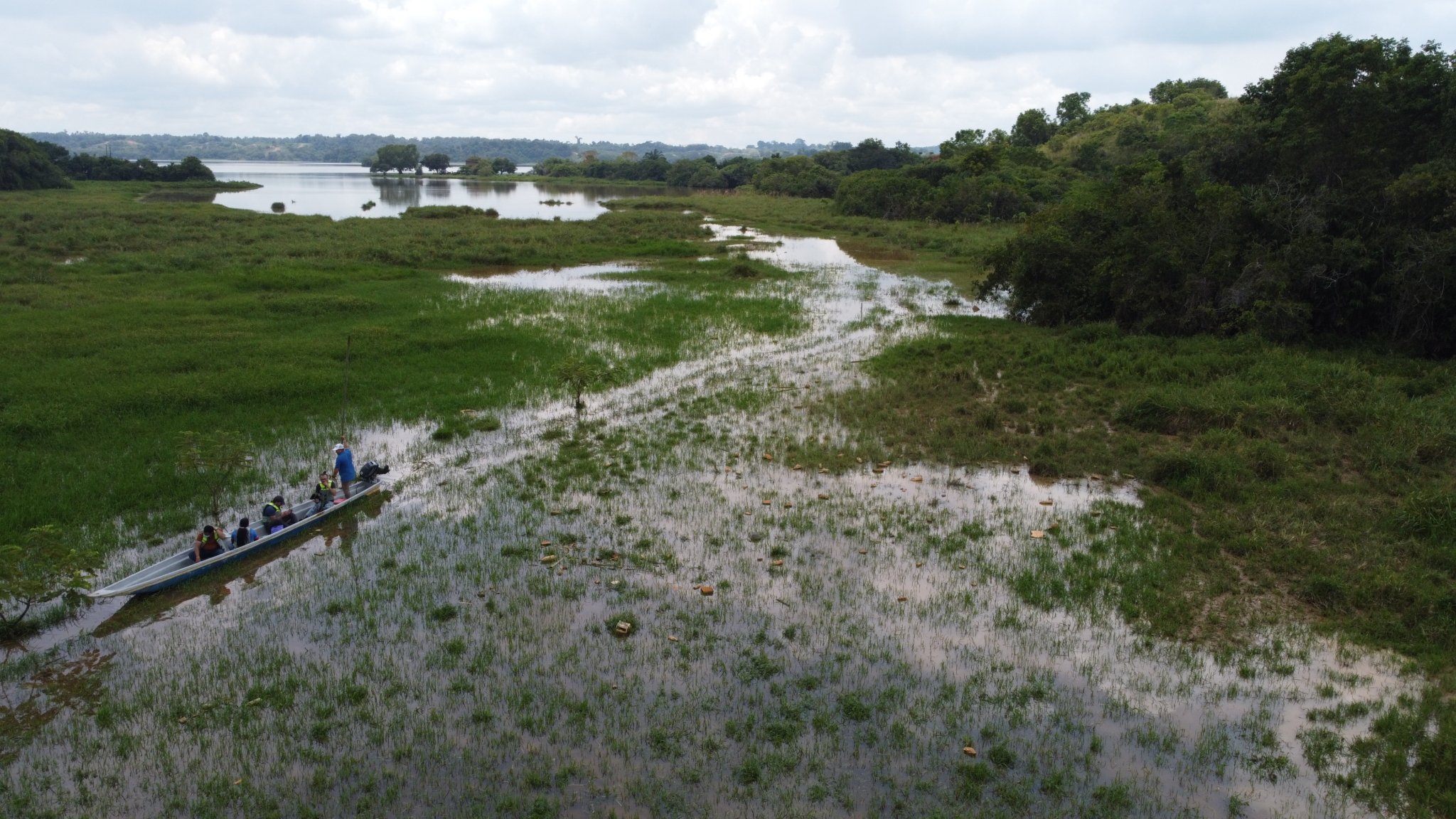
It’s so sad that in Colombia, many families go to bed without any food. It’s troubling to see so many dead fish all year round. That’s why I want to ensure those responsible for pollution are held accountable. It’s not easy. I’ve been shot at … yet, despite the threats and attacks, more women have joined our cause and we’ve learnt to stand with one another …
Yuly Velásquez, President of FEDEPESAN
Against the odds, Yuly and her organization carry on making their voices heard, a source of hope, but hope that is very much at risk.
The big picture
The ever-present danger for Yuly, and other members of FEDEPESAN is by no means an isolated case. Colombia is the most dangerous country in the world to defend land, Indigenous territory, and the environment according to the 2023 report of Global Witness. Between 2016 and 2022, an average of one human rights defender has been killed every 61 hours in Colombia, according to the organization Somos Defensores. As of December 14, the Institute of Studies for Development and Peace (INDEPAZ) had recorded the killings of 183 more civil society leaders and human rights defenders in 2023, an alarming statistic. The danger is particularly acute for Indigenous, Afro-Colombian and campesino leaders defending their lands and water.
Defenders are at the heart of our new campaign
Yet despite the gravity and the scale of ongoing violence, defenders refuse to be silenced or to halt their efforts on behalf of their communities and all of us. They appeal to us to amplify their voices, make visible the violence they face, and press for action to prevent further killings.
Those calls are at the heart of a new campaign that Amnesty Canada will be rolling out at the beginning of 2024. Our goal is to help create an enabling and safe environment for defenders of land, water, and the right to a healthy environment. We’ll be focusing on achieving protection for threatened defenders so they can continue their vital work. We’ll also be pressing authorities to address the root causes of the violence.
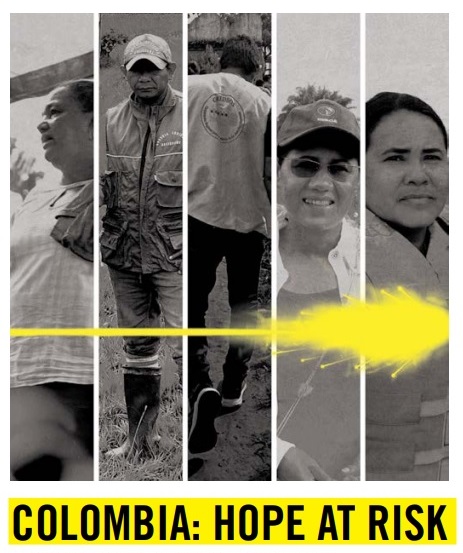
The situation couldn’t be more urgent! But there is an exciting potential now to reverse decades of violence against human rights defenders in Colombia.
Why Now?
In mid-2022, Gustavo Petro won the second round of presidential elections in Colombia, accompanied on the ballot by Francia Márquez, his vice-presidential running mate. Their election was historic. Petro became the first President with an explicitly leftist agenda and the first former member of a rebel group to become President. Márquez, a renowned human rights defender and winner of a prestigious Goldman Environmental Prize, became the first Afro-descendant woman to become Vice President. These precedents imply a radical shift in Colombia’s domestic politics.
The new government prioritized protection of human rights defenders in its first 100 days in office, launching an emergency plan. It strengthened the Human Rights Directorate of the Ministry of the Interior, which plays a key role in the protection of defenders and provided staff and budget to develop collective protection measures.
While a good first step, the emergency plan has not been effective. Homicidal violence against human rights defenders increased. According to the Office of the United Nations High Commissioner for Human Rights, 2022 was the most violent year for defenders since 2012.
Nevertheless, the Petro-Márquez government has publicly acknowledged the dire realities faced by defenders, challenges inherited from previous governments that were hostile towards human rights defenders. The current government has shown a political will to seek solutions. Amnesty International believes there is a unique window of opportunity now to work with defenders in Colombia to generate structural changes needed to stop the killings.
What’s Next?
Check back here for an e-action that will be up shortly, along with instructions for letter writing and social media action. We also have exciting ideas for creative solidarity. Want to learn more and get involved in the development of our activism plans? Watch for an invitation to an Activism Gathering at the end of January.
Key Dates to Mark in Your Calendar
Mark your calendars for World Water Day on March 22 and Earth Day on April 22. We’ll be offering opportunities to hear directly from inspiring defenders in Colombia and to take action with them.
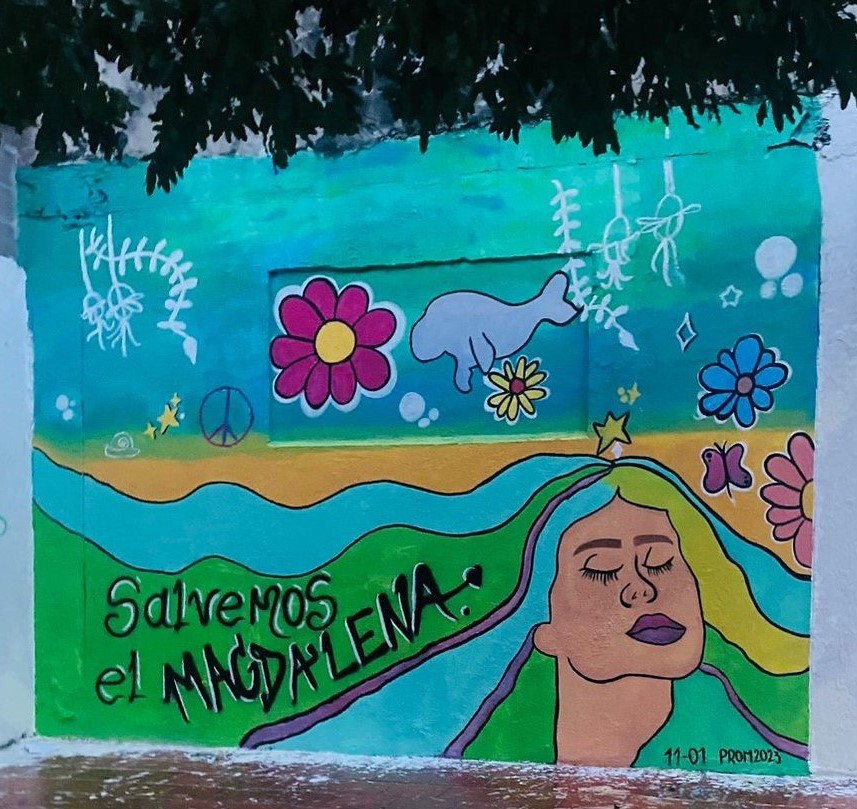
Learn More
- Watch a webinar with threatened land, Indigenous territory and water defender Berenice Celeita












